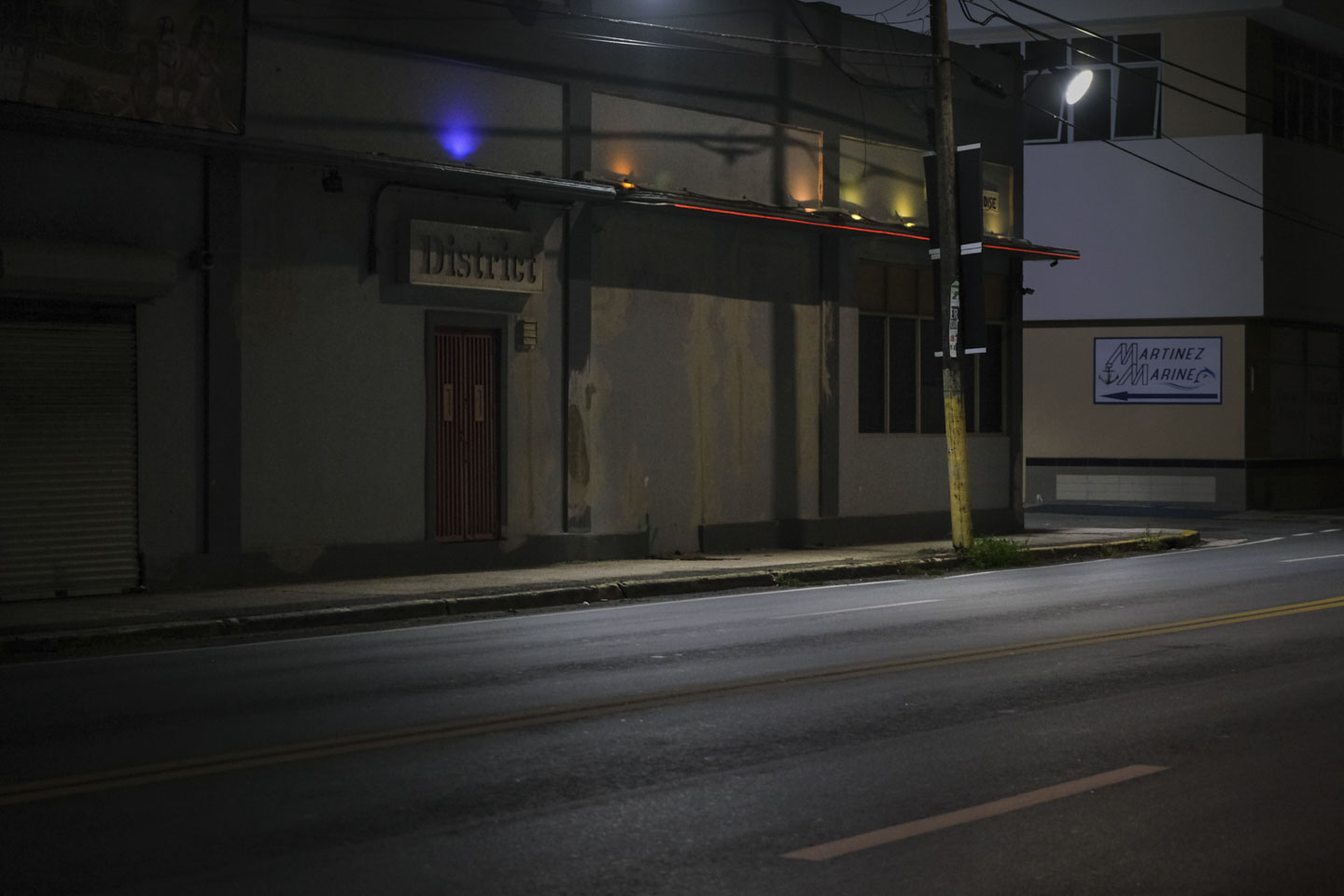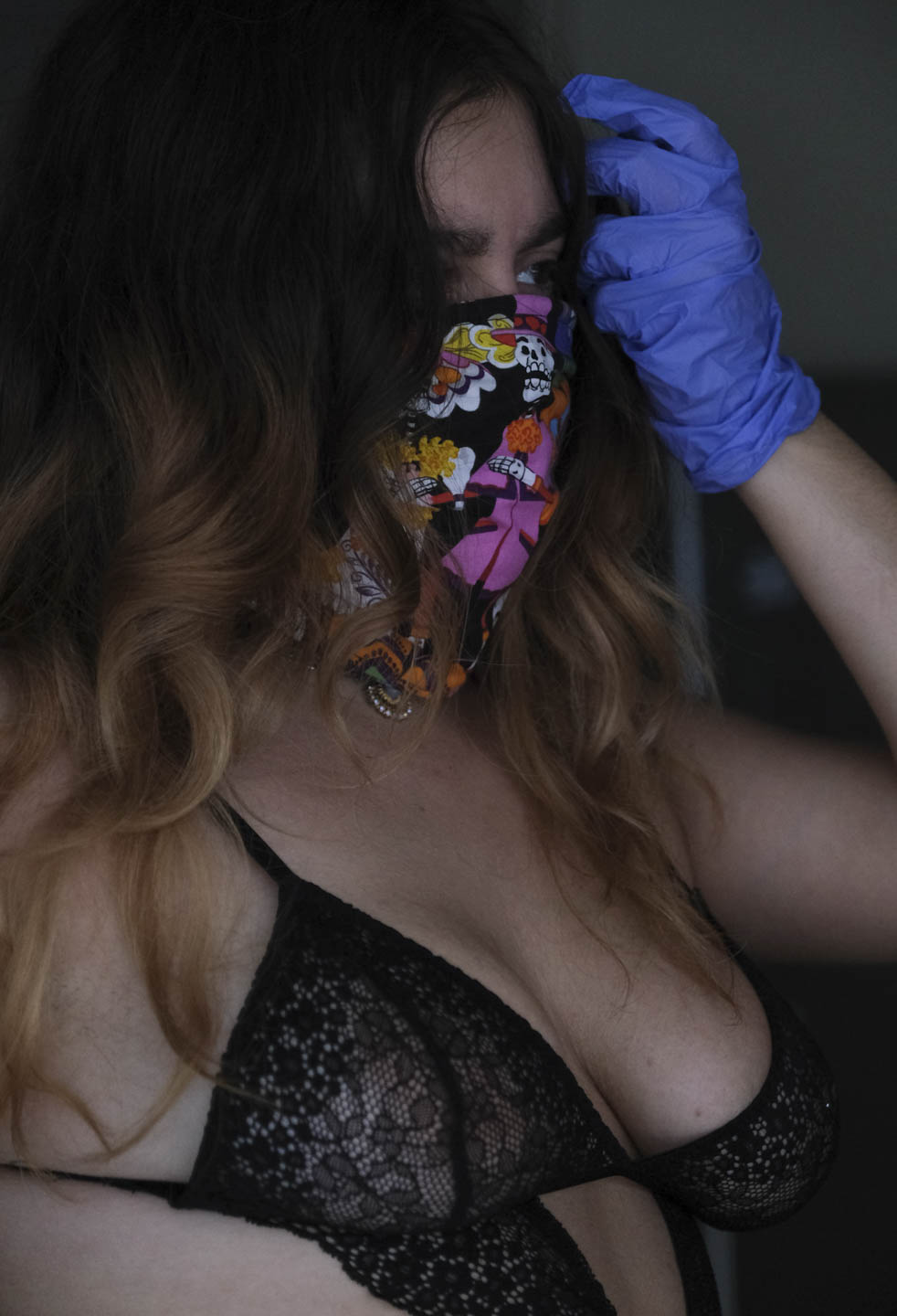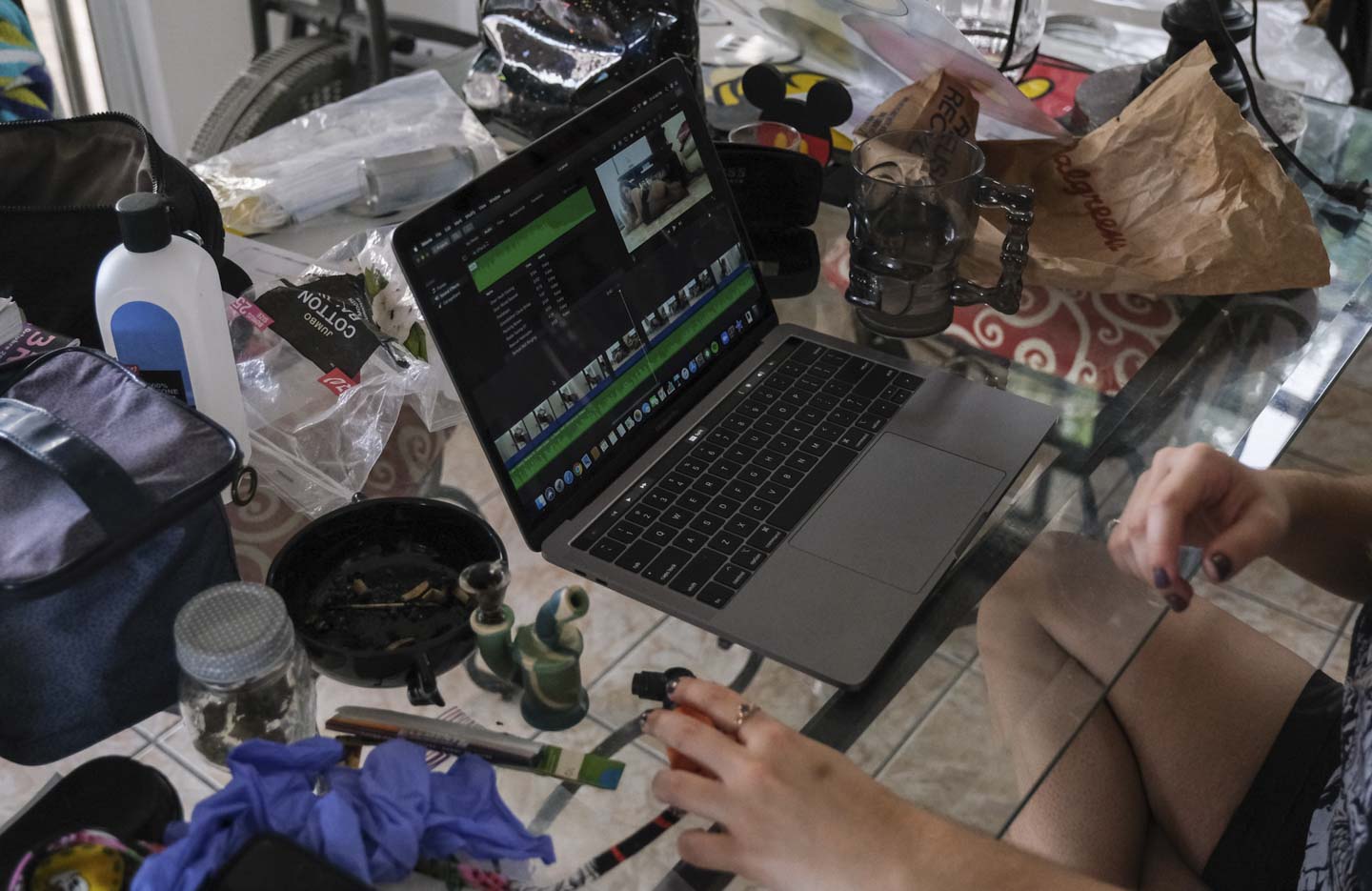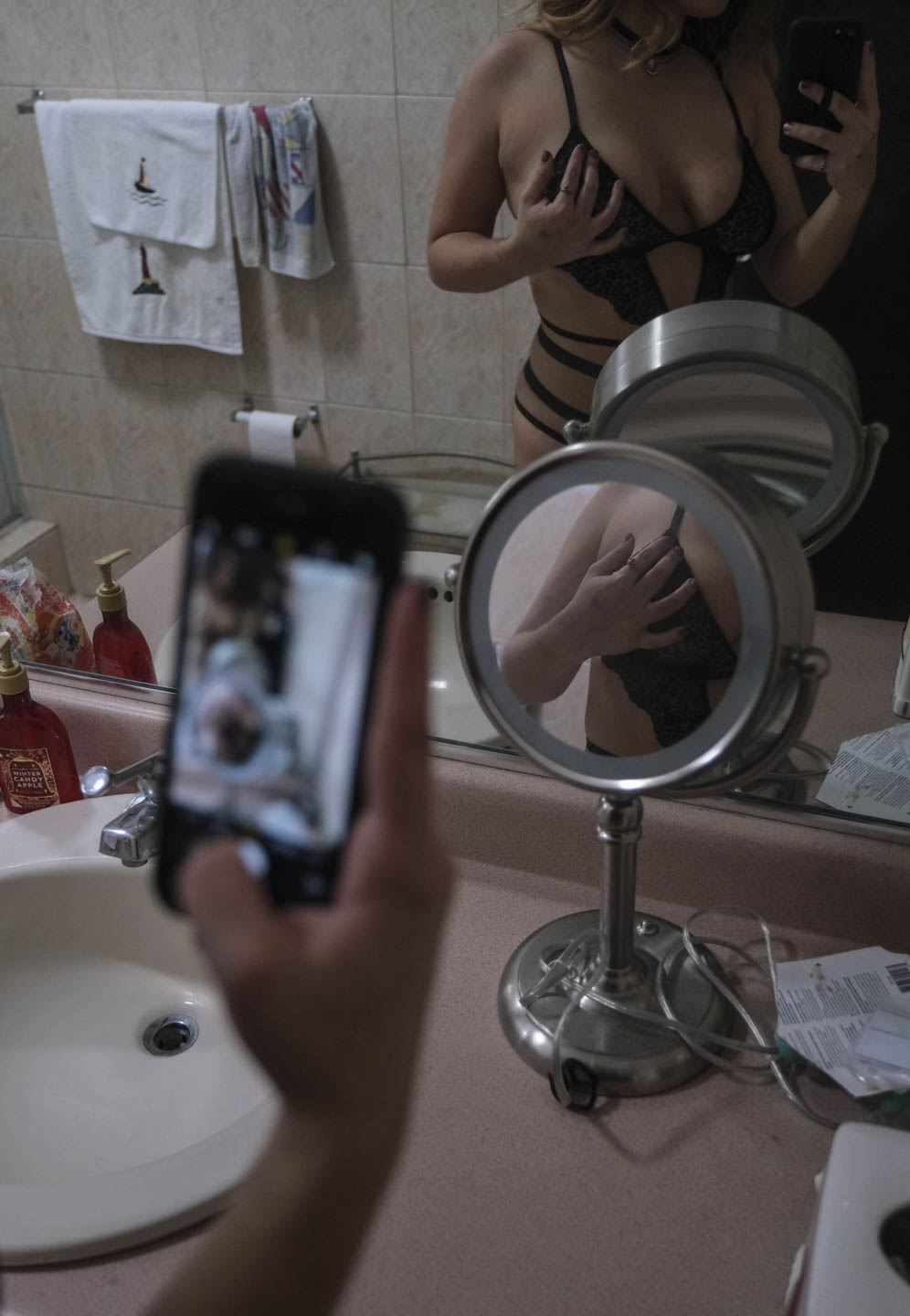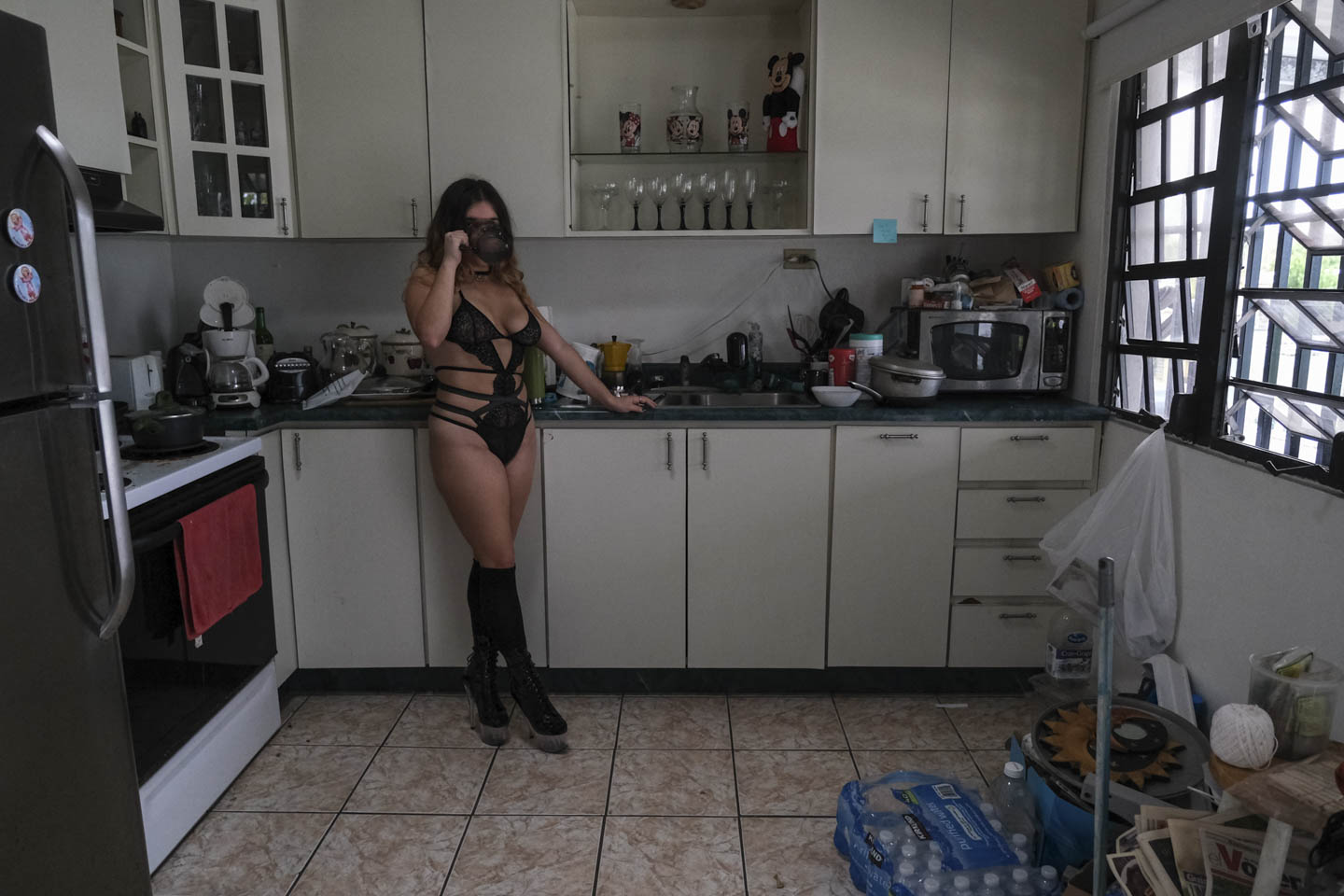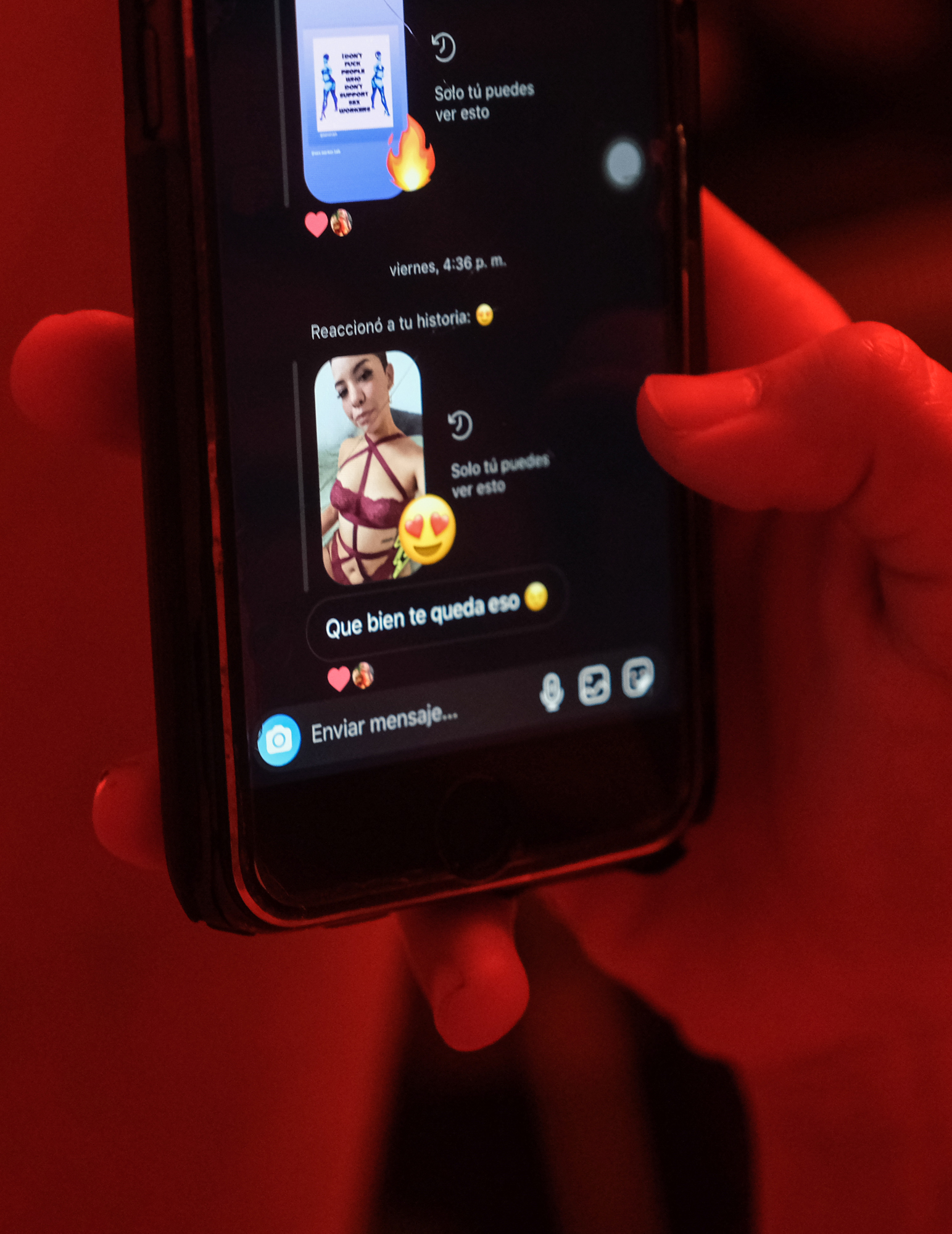EDITOR’S NOTE: The Nation believes that helping readers stay informed about the impact of the coronavirus crisis is a form of public service. For that reason, this article, and all of our coronavirus coverage, is now free. Please subscribe to support our writers and staff, and stay healthy.
The Nation and Magnum Foundation are partnering on a visual chronicle of untold stories as the coronavirus continues to spread across the United States and the rest of the world—read more from The Invisible Front Line. —The Editors
Puerto Rico has been in economic trouble for more than a decade, with wave after wave of austerity policies stripping the territory of resources and tearing an already frayed safety net. The scarce job opportunities became even scarcer after Hurricanes Irma and María in 2017 and the 2020 earthquakes. The Covid-19 pandemic, therefore, comes as just the latest misfortune to hit an already battered island, compounding the problems that existed long before.
For college students and young professionals, the options that remain are slim: Leave the island to look for better jobs somewhere else, stay on the island to earn $7.25 an hour in a minimum wage job, or go outside the island’s decimated job market and try to make rent some other way.
As a queer woman coming out of college, I’ve experienced this struggle firsthand. A freelance photojournalist in Puerto Rico, I often have to create work that appeals to US and international media outlets, since local opportunities to place my work are extremely limited. But as I’ve grown into my photographic practice, I’ve realized that I don’t have to look far from my social circle to tell stories that are important to me.
That’s where this story comes from: In the past year, many of my friends have taken up sex work as their primary source of income. In normal times, most of my friends who work in sex work do so at strip clubs, while others work on the streets to find clients, but with the coronavirus closing clubs and locking down the economy, they’ve had to find new ways of earning their livelihood. In a criminalized work sector, sex workers already labor without the benefits or protections other industries enjoy, and during this pandemic they also can’t access unemployment benefits or any of the paltry economic assistance packages being offered right now.
As a result, while some sex workers are forced to take the risk of meeting clients, many of my friends have been moving their operations to digital platforms. They’re not navigating this crisis alone, either: Groups and outlets like Espicy Nipples, Trans Tanamá, La Sombrilla Cuir, El Hangar, Todas Puerto Rico, many of which are led by women, LGBTQ+, and nonbinary activists, are using this moment to push for the destigmatization and decriminalization of sex work and solutions to gender-based violence—in addition to broader calls for greater economic opportunities on the island.
With Puerto Rico still under a shelter-in-place order, I reached out to my contacts in sex work and asked them how their lives have changed, the challenges of digital sex work, and the efforts they’re undertaking to survive this crisis together.
Nairobi (she/her), 25, from San Juan
I’m especially concerned about sex workers who work on the streets and don’t have access to digital strategies, to digital sex work for whatever reason. We need people and organizations to worry about us, to support us.
Like, yeah, the clubs where I work at have said, “Ohh, we’ll see you when we open again,” but are they communicating with us? Are they looking out for our needs? There’s a lot of negligence by club management and owners.
Gala (she/her and they/them), 24, from Bayamón
I started around January at a strip club in Isla Verde. Since quarantine started, I haven’t had any work because the club was my main income. I am completely unemployed right now. I have monthly food assistance, but that amount of money only lasts for two weeks of groceries and sometimes even less. I’ve had to use some of my savings to be able to buy groceries. Most of my savings have been used up since quarantine.
A lot of my colleagues have started selling digital content to maintain relationships with their clients and to have income, but unfortunately, because my family doesn’t know that I am a sex worker, that is not a possibility for me right now. I’ve been trying to figure out how to go about my work since the pandemic because I need to make money.
Karo (she/her), 20, from San Juan
On an individual level, it worries me not being able to finish my studies, get my high school degree. It worries me that there are sex workers that don’t have access to homes, health care, et cetera, still have to go out to the street and put themselves at risk.… We deserve a better way of doing our job. I want to have a pension. I want to be able to have life insurance doing what I do, but I can’t because I don’t have a payroll, I don’t file taxes.
The lack of education, space, and security is what worries me the most. Especially as a trans woman in this country, where there have already been five homicides of trans people in less than two months. It scares me, I’m afraid of going out. My mental health has been affected by all this…because when I work on the street, I don’t necessarily know who I’m meeting, what kind of client this is. I used to stand in the streets of Santurce, and now I don’t know how I’m going to do that because of how scared I am for my life. They can just come by and shoot me, like they did with Alexa [Negrón Luciano, a trans woman murdered in February]. What difference is there between Alexa and me? None, because like her, I am a poor transgender black woman. They hate us in this country.
Some of us are working on communicating more with one another. Talk about experiences, communicating what we need, trying to get resources for each other. We are trying to organize a group to make collaborations and exchanges easier between the sex worker community. I think this is what we need. I think it’s going to be great.
Akila (she/her), 22, from San Juan
My routine used to be going to college every day and working one to three days a week in the clubs. I had quotas. I had to make a certain amount of money a week to decide how many days I should be working to cover my debts and responsibilities.
Now I feel a lot more physically safe, but selling digital content is new to me, so I’m learning how best to do this. How do I create content? How do I capitalize on my body? How do I put a price on photos or videos? I’m learning how to market my content, promote my work, think of new ways to sell.
Instagram is the only platform where I promote my sex work, privately, because I have been banned before. I ask for the money via ATH Móvil Business or PayPal and then send the images via WhatsApp. Sometimes I’ll send the images through Instagram because clients are pickier about receiving messages on their phones.
I’ve been studying from home, which takes a lot of my time, and making digital content. I’m mostly depending on my savings right now. I’m using this time to think about how to gestate political actions within sex work. I’m very lucky to live with someone who supports me, to have our basic needs met, to have savings, to live in a safe space, and to be able to take this time to think and rest.
These actions that I’m thinking about, I imagine it as a solidarity organization to find tools and resources for self-care, mutual care, resources, funding, and building support networks between people that understand and live these experiences. It takes a lot of vulnerability to have these conversations, to be willing to share your experiences as a sex worker.
Tokio (they/them), 21, from San Juan
Working at home gives me the liberty of doing it whenever I want without having a boss on my ass or having to stick to a work schedule. It has its pros and cons, money flow is not the same, and a lot of people are using the situation to pesetear [try to negotiate to pay a price lower than the value of the work]. That also opens the way for a lot of more risky things. I have a lot of friends in the sex work industry here that practice full services, not just dance, and they are being asked to do riskier stuff at the same price…. And it’s like, either this or no income.
What I like about the club is the no picture policy and that you come and see me once and you forget about me, and it’s not even the real me you are meeting. On the Internet, it’s a whole other story, because I have to promote myself, and that means they are going to have something with them, with me on it. It can put me in vulnerable situations.
Once this is over, there’s going to be a lot of new girls to sex work, and this is going to be a vulnerable time for them because a lot of people might try to take advantage of them, coming new to the industry. The people who run strip clubs in Puerto Rico can be very violent to people who are vulnerable. Especially after a crisis like this where the strip club is going to be a space where a lot of fucked-up things might happen. It worries me that there is going to be more tension at strip clubs.
I feel that the thing that is going to get us through is ourselves, us sex workers as a community. Even in the club, where there’s rivalry, there’s still some strong bond of sisterhood. I think that is what is really going to get us through. Not the bosses, not the clients, not the government, just us.
Gracias, Akila, por facilitar el contacto entre trabajadorxs sexuales, por tu gesta, por tu conocimiento, por ser tu, por contarme, por ser mi amiga.
Gracias, Karo, por guiarme mientras creamos imágenes juntas y tu energía.
Gracias, Nairobi, por la honestidad y tu flow sin tapujos.
Gracias, Gala, por crear, construir y colaborar hasta llegar a una selección de imágenes que respeta tus límites y tus deseos.
Gracias, Tokio, por tu vulnerabilidad y por la confianza en este trabajo, que es tuyo, que es nuestro.

